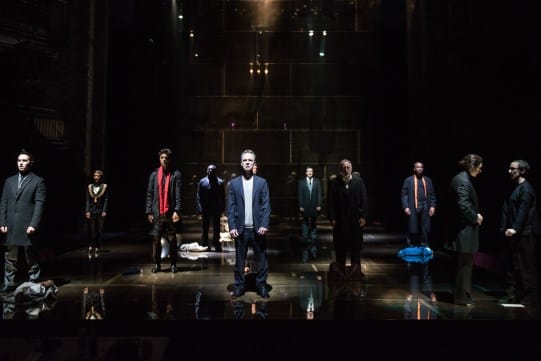Merchant of Venice

Composer, Arranger
In 2015 I wrote the score for Polly Findlay's Merchant of Venice at the Royal Shakespeare Company in Stratford upon Avon. The music and arrangements were drawn from 15th and 16th century sacred and secular vocal pieces that had close associations with Venice.
So-called laudes (songs of praise), that were historically performed by children in the streets of Venice, provided a simple secular counterpoint to more complex sacred pieces reflecting the concept of the ‘music of the spheres’, such as Infelix Ego by Adrian Willaert.
The director’s desire to emphasis the effects of sorrow, grief and religious “madness”, were reflected in an eerie score that was performed live on stage by the cast, supported by a band featuring metallic percussion, electric guitar and low brass, off-stage singers, and a children’s vocal ensemble.
Several Glockenspiels, slightly out of tune with each other, served as a link with the stark metallic stage design by Johannes Schütz. To strengthen that link further so-called transducers were built into the back wall of the stage, creating a massive sound installation.
The desire to musically emphasise the immense pressure the main characters of the play are under led to modern instrumentations of period fragments - the loop based gestures of minimal music functioning as a technique to musically mark returning motives of never-ending pain.
Most prominently, we used a period piece by an anonymous composer called Ecce Quomodo Moritur Iustus before the trial scene. "Behold how the just man dies, and no one takes it to heart, and just men are carried off from the earth and no one ponders it."